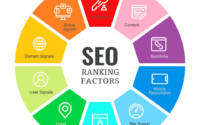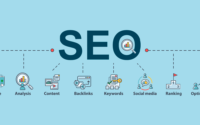The Penguin Algorithm From Google; Aims To Ignore Links That Are Apam, But It Can Make People Distrust Your Website.
Isn’t it better to build a site that gets links naturally rather than building links?
Google informed us that the real-time Penguin algorithm update, which was code-named 4.0 by some SEOs, devalues or ignores most spammy links when it was released in 2016. The majority of the time, Google’s Penguin algorithm stopped penalizing bad links because it wanted to eliminate spammy links and just not count them instead of penalizing them.
In a video Q&A session on Friday, Google Search Advocate John Mueller stated that Penguin does attempt to ignore spammy links. However, Penguin may penalize and distrust the site as a whole and not act in the granular way it was designed for in situations where Google cannot because there is a “very strong pattern” of spammy links pointing to the site.
John Mueller expressed this at the 37:06 imprint in this video he posted on Friday on the Google Search Focal YouTube channel.
utterances made. “Is the Penguin penalty still relevant at all or less relevant spammy toxic backlinks are more or less ignored by the ranking algorithms these days?” was the question John was asked.
John said, “I’d say it’s a mix of both,” in response. “For the most part, when we can recognize that something is problematic and any kind of a spammy link, we will try to ignore it,” he explained. It is possible for our algorithms to say, “Well, we really have kind of lost trust with this website and at the moment based on the bigger picture on the web, we kind of need to be more on almost a conservative side when it comes to understanding this website’s content and ranking it in the search results, and then you can see kind of a drop in the visibility there.” If our systems recognize that they cannot isolate and ignore these links across a website, if we see a very strong pattern there, then it is.
John is expressing, that at times, Google’s Penguin connect calculation can downgrade the entire site in light of the connections and not simply overlook the particular nasty connections. However, it appears that there must be a very high number of spammy links.
However, we are aware that we must ignore many of the links on the internet because, for the most part, the web is rather messy. Therefore, I believe that’s fine for the most part. In most cases, you wouldn’t see a drop of this magnitude unless there was a strong and distinct pattern tied to the website,” John continued.
John returned to Twitter to provide clarification, stating that “this is the case for many spam and low-quality signals” in Google’s algorithms. He made sense of, “we’ll attempt to disregard the unessential impacts, however assuming it’s difficult to come by anything valuable that is remaining, our calculations can turn out to have serious doubts with the site in general.” ” He added, “Our spam algorithms do take into account a number of factors and are quite nuanced.”
Disavow links. Even though Google stated that we really don’t need to, are we still required to disavow links now? The response is no; you are not required to deny links. “I’d either ignore it or use the disavow file (for the worse domains),” John Mueller stated.
Website design enhancement specialists toll in. I asked a couple of Website design enhancement specialists their perspective on what John said in this video and this is the very thing that they needed to say:
“John’s advice here shouldn’t come as much of a surprise to SEOs who have dealt with companies engaging in large-scale link building initiatives using tactics that violate Google’s guidelines, only to encounter massive declines in ranking and traffic,” Lily Ray, the Senior Director, SEO, and Head of Organic Research at Amsive Digital, told us. When websites encounter difficulties, Google does not always issue a manual response. However, in many instances, websites may experience difficulty ranking or the impression that they have been penalized by the algorithm without being informed in advance. Frequently, when you investigate their backlink profile and converse with the organization about their Search engine optimization system, you could find that a large portion of the connections are paid connections, visitor posts, footer joins, careful match anchor text, and so on. on sites that nobody has ever heard of. She continued, “I believe it is important to reconcile Google’s trust issues with your site in these cases by disavowing the paid/offending links and earning new, trustworthy organic links.”
According to SEO consultant Glenn Gabe of G-Squared Interactive, “Google’s rollout of Penguin 4 was a great move in 2016 because it devalued link spam rather than penalizing it.” However, as John explained, Google’s algorithms may be skeptical of the website and may lose trust in the site as a whole if, in the extreme, they are unable to locate any links that are useful and if there is a distinct pattern of spammy links. The website may experience a decrease in search visibility as a result. The issue is that many site proprietors accept they are being gone after by means of negative Website optimization (and that those connection assaults are working — and it’s the explanation they have seen drops over the long run). Google has previously stated that negative SEO tactics are ineffective and that link spam can be ignored by its algorithms (especially for sites with a normal mix of links). Therefore, the scenario John discussed in the most recent Search Central Hangout would not really apply to many of those websites that are concerned about negative SEO attacks. In my opinion, a site can be problematic if it has a link profile that is overwhelmingly spammy (almost all of the links are unnatural and spammy) but no other quality links. However, John’s explanation should not pose a problem for the majority of sites with a typical mix of links. Sadly, site owners are already complaining about this, even though their websites do not appear to be in the situation John described in the video.
Dr. Marie Haynes, the Chief of MHC inc told us, “Google’s correspondence on what site proprietors need to realize about Penguin has been disappointing. “If Penguin sees signs of manipulation, it can decide to discount ALL the links, which can be pretty bad for a site,” Gary Illyes told us at a Pubcon conference in late 2016 that it was indeed possible for Penguin to algorithmically cause harm. Our conviction is that while this can occur, it is saved for situations where an undeniable history of connections is being assembled exclusively to control PageRank on a cosmic scale. Even though we have seen improvements for some sites after filing a thorough disavow, even if no manual action was taken, the only cases in which we believe we can attribute improvements to disavow work are sites that have a long history of manipulative link building.
Why it matters Ultimately, you should exercise caution when building links. Don’t look for easy, cheap ways to get links to your site or buy links. Try to audit Google’s archived connect plans help record and remain far away from those strategies.
When working on client websites that might have problems with links, you need to decide whether or not you really need to remove links, and then you need to decide which links you should remove. You may not need to worry too much about it because Google is likely already ignoring the majority of the harmful links.
It might be simpler to build a website and content that other websites naturally want to link to without you asking them to do so rather than engage in the practice of link building.



